“Should I Groom My Pet?”: An Introduction to Home Grooming!
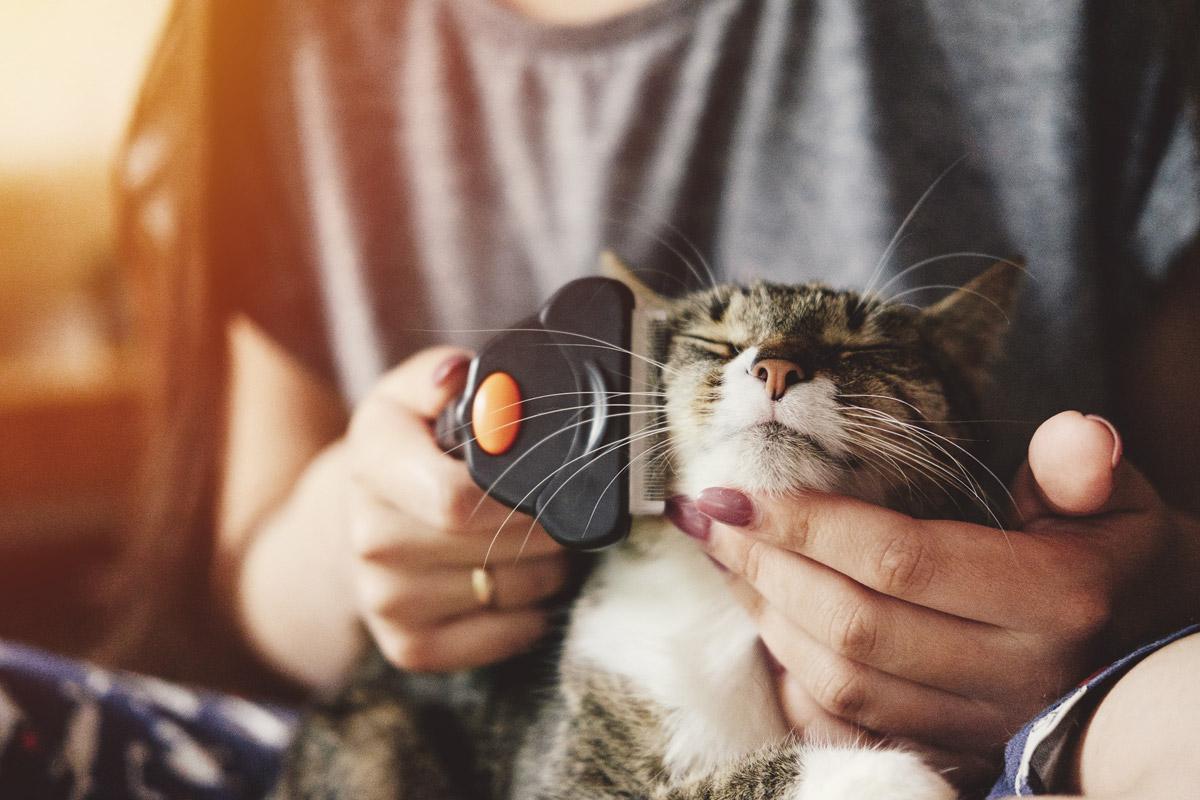
You’ve probably seen a cat meticulously licking its coat, paws, tail–and coat again. Cats have an amazing natural ability to groom themselves and keep their coats clean and healthy. However, cats are definitely not the only domestic animals to do so. A dog’s powerful shake, a bird’s preening and picking of its feathers, and a hamster’s rolling about in a sand bath, are all examples of our pets self-cleaning.
Yet, it is still essential for pet owners to groom their pets for the sake of their health and comfort. Different animals and breeds have varying grooming needs, too. So, how often should you be grooming your pet? And more importantly, how?
Cats
Grooming for felines generally consists of coat care, nail care, and even dental care.
Cats groom themselves fastidiously for a multitude of reasons. Besides ridding herself of matting and foreign bodies, your cat’s grooming stimulates circulation and is a form of self-soothing. Tiny spines on her tongue make an effective brush to smoothen out her coat.
As a cat owner, grooming your pet once a week if they are a short-haired cat, and even daily for long-hair breeds is beneficial. Not only does it strengthen the trust between you and your cat, but for long-haired breeds, elderly or arthritic cats, your help may be a necessity.
Choose a brush that is best suited for your pet! There are a variety available for your cat according to their coat type, so even the most finicky cats can have a comfortable experience in your arms.
Generally, indoor cats do not need to be bathed too often (just think of all the cats that hate water!) However, a bath with a gentle soap once every 4 to 8 weeks is ideal for your pet to keep clean, minimise shedding and remove dander.
In the outdoors, cat s naturally whittle down their nails on tree trunks and the various things they come into contact with. However, domestic cats without this opportunity will often overgrow their sharp little claws, which may then catch and potentially harm your cat. Cat owners should own a handy set of clippers to clip their cat’s nails.
When doing so, it is essential to avoid the pink blood vessel running down each nail. If you happen to nick it, apply pressure or even a cat-safe clotting or styptic agent to stop any bleeding.
Cats may not enjoy the clipping process at all! So, it is best to do it as quickly as possible, and when they are in a calmer or sleepier state.
Feline dental care is more important than most cat owners realise. Cats are susceptible to oral and gum diseases such as gingivitis and feline periodontal disease. In fact, it is thought that as many as 50-90% of cats above the age of four, suffer from a dental disease.
Pet owners may take preventive measures by brushing your kitty’s teeth regularly, or even daily.
If that seems too troublesome for you and your particularly feisty kitty, you can opt for dental gels, or even water additives. Chew toys also improve dental health. In the long term, switching your cat’s diet to one with less additives and colourings would be beneficial in keeping your cat’s teeth pearly and strong.
Dogs
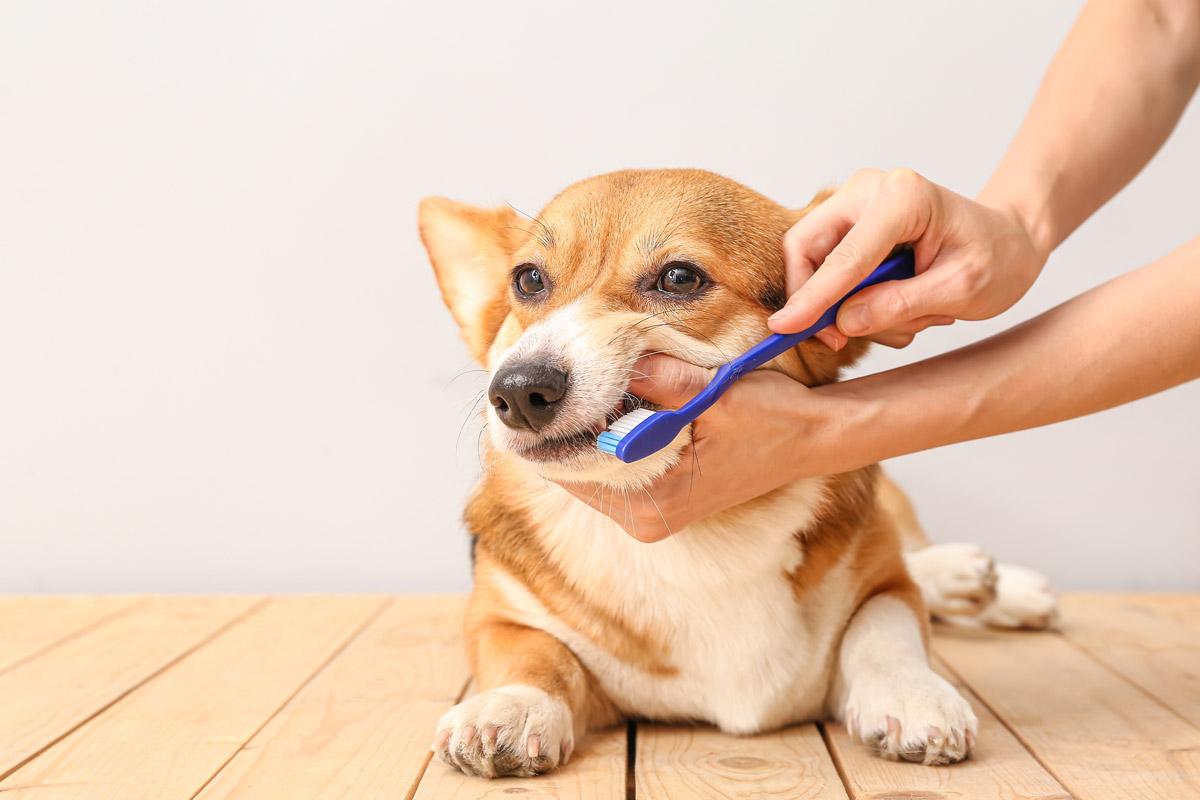
Although they appear less meticulous than their feline friends, dogs engage in self-grooming as well. Dogs may lick themselves to remove dirt, roll around, or forcefully shake themselves clean and dry. That being said, all dog owners know how grooming is just as essential to a pooch as play-time and family fun.
The world of dog grooming is expansive. Every dog has their own grooming requirements depending on their breed. Some dog breeds such as beagles or dobermans, have minimal requirements, while others such as poodles and pomeranians require frequent grooming. Double-coats vs single-coats, whether they have hair as opposed to fur and skin conditions are things to consider when it comes to the best way to groom your pet.
It does not have to be daunting though! All you need are the right tools for a good doggy pamper session. As with cats, the type of brush or comb you select depends on your dog’s coat type. Here’s a basic guide:
All-purpose slicker brush: Detangle, remove loose fur and smoothen coat
Curry brush: Appropriate for brushing out thicker coats
Rakes/Undercoat rake: Detangle and remove loose fur from the undercoat while leaving the topcoat undamaged
Flea comb: Detect fleas! (An especially good option for young dogs that may not react well to flea baths)
Brushing your dog’s teeth is important too! Like in cats, dogs are easily susceptible to dental diseases. Dog owners should try daily brushing, or as often as possible. Dental treats and chews also help keep your dog’s mouth fresh and clean.
Birds
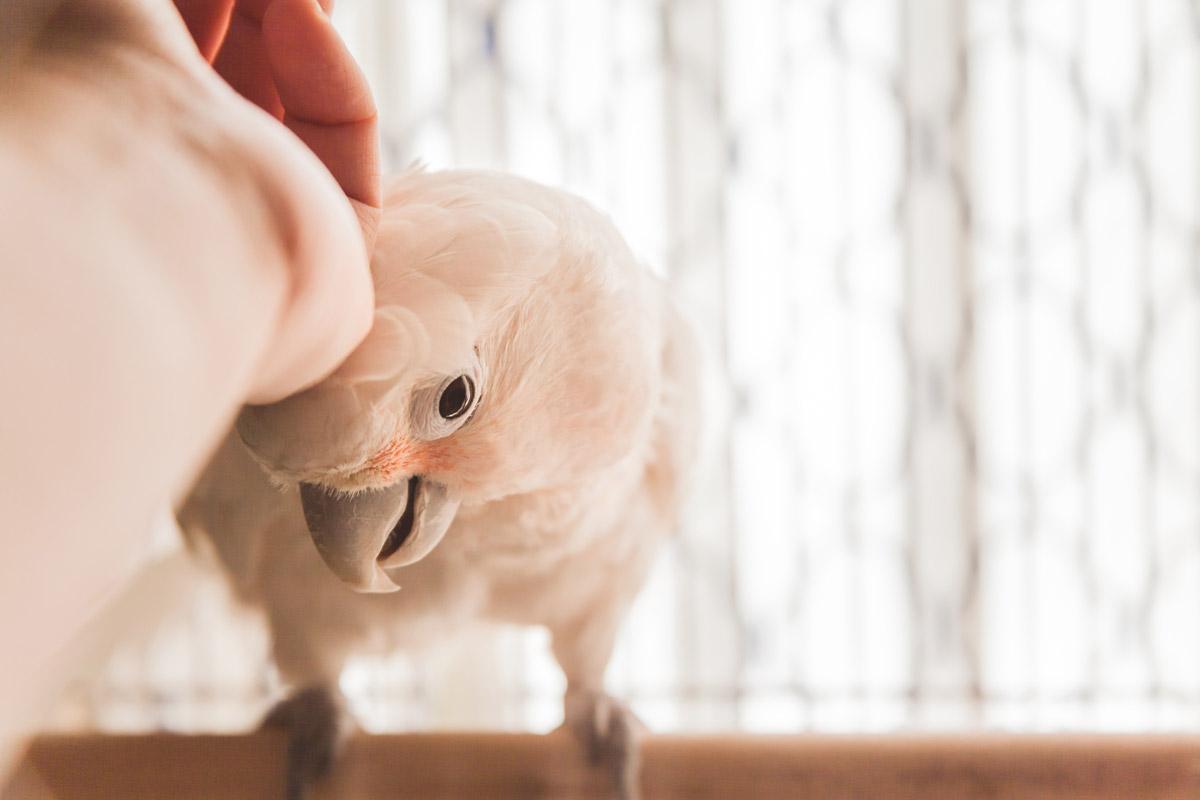
A healthy bird will preen her own feathers, so a bird owner’s main job is to maintain their pet’s nails and beak. As with most indoor pets, they are not exposed to different materials outdoors, such as tree trunks and other textured surfaces, which naturally wear down their nails. This makes it necessary for bird owners to clip their pet’s nails.
Be sure to do so carefully! As with cats and dogs, birds too, have a blood vessel running down each toe. If you happen to nick it, apply pressure with your finger. You could also use a clotting or styptic agent to stop the bleeding. Such powders are available for cats and dogs as well.
Bird owners, however, should never attempt to trim their pet’s beak at home. Providing enrichment, such as chew toys, will entertain your pet as well as naturally wear down their beak. If your pet’s beak seems to be elongated, make an appointment with a vet to help trim it down.
Letting bird nails and their beak may be harmful, as with their nails may catch in different things, while an elongated beak may cause injuries to their delicate bodies.
Rabbits

Rabbits benefit from frequent brushing to prevent matting of their fur. Brush your bunny with an appropriate slicker brush for their fur type, and trim their nails with clippers. It is recommended to brush your rabbit every three days or so, and more often if they are shedding.
Bathing or even flea baths are not recommended for rabbits, as they are capable of keeping themselves clean. A flea comb, and in more serious cases, a topical flea solution is a much better way to combat any fleas, should they appear.
Small animals
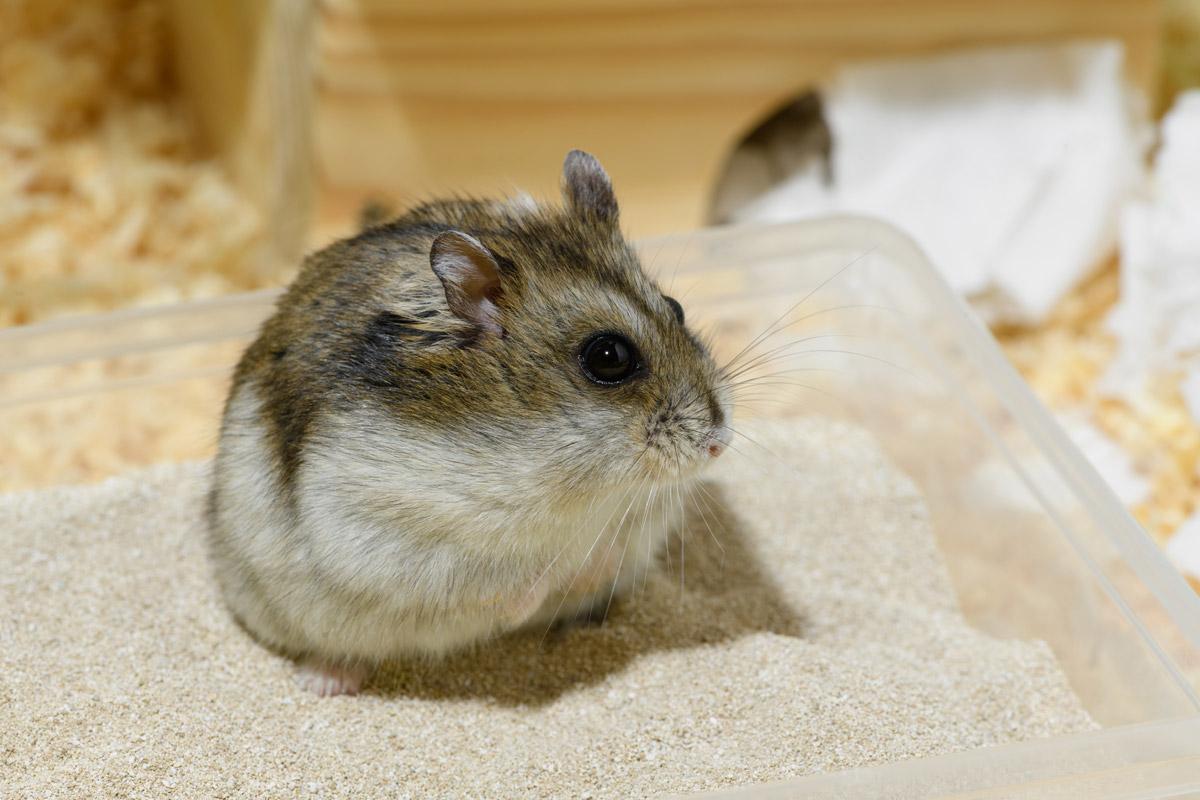
Small animals like hamsters are fastidious little furballs that can normally keep themselves clean and tidy without their owner’s help.
In fact, water can be harmful to a hamster, as it may strip its fur of essential oils and subject it to a chill, or even illness. What you can do instead, if your hamster appears a little dirty, is to offer them a sand bath in a little container for them to roll around in. You could leave a sand bath in your hamster’s cage at all times, or provide it for them if they look like they might need one.
If a foreign substance has gotten caught in their fur, you may use a soft toothbrush or cotton bud with a minimal amount of warm water to clean it off.
Some long-haired hamsters may benefit from brushing out their fur from time to time, with a soft brush.
The same idea applies to guinea pigs, gerbils, mice, chinchillas and other small animals.
When to go to a professional?
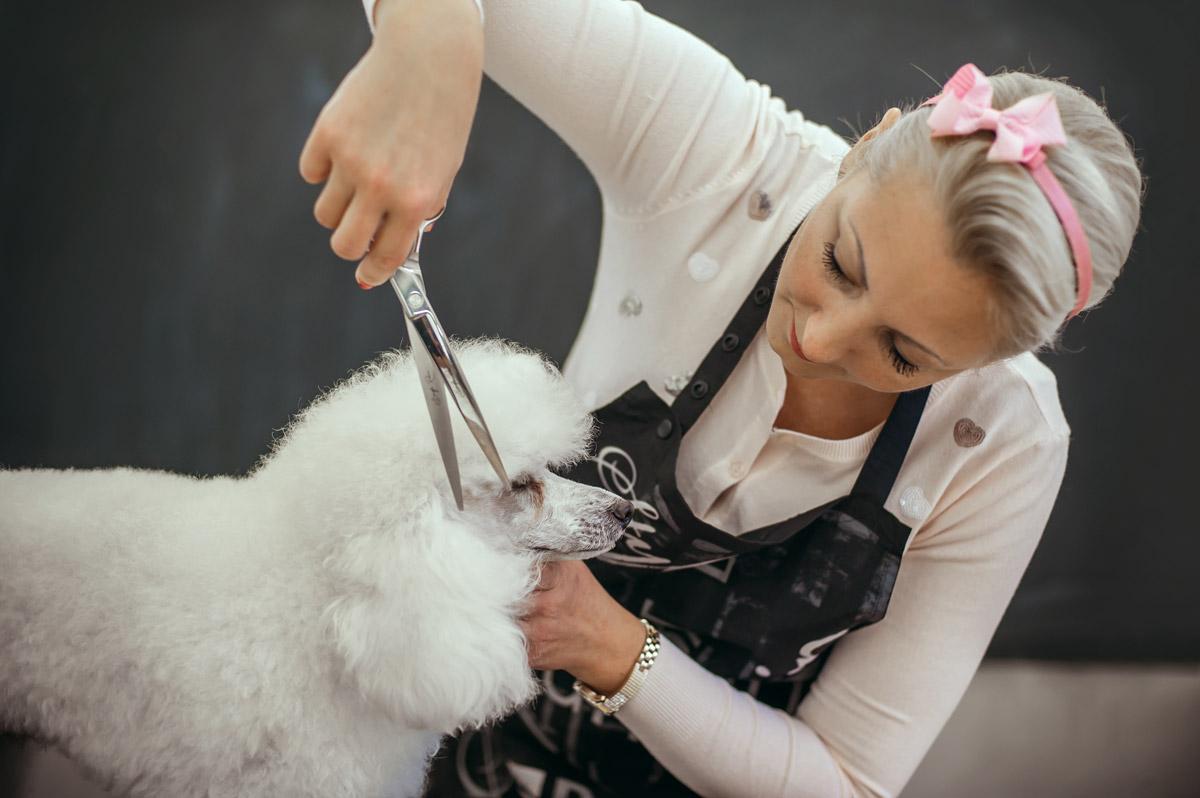
If your pet requires specialised grooming, it may be a good idea to send your pet to a groomer instead. This applies especially to dog breeds with more particular grooming needs, such as poodles.
More ‘exotic’ animals such as chinchillas may also benefit from a visit to the groomer.
In fact, before you adopt a pet. it is a good idea to look up a pet’s grooming requirements, and make sure you are able to commit to them!
If your pet is difficult to handle, you may even visit a vet to help you clip your pet’s nails. Many veterinary clinics even offer professional dental cleaning services.
Pet owners should also bear in mind that if your pet is not engaging in their natural grooming routines, it may be a sign that your pet is sick. Your pet’s coat is a vital indicator of their health, as animals in pain may be unable or unwilling to carry out their grooming. If your pet is sporting a dishevelled appearance and lethargic, you should book an appointment with your vet!
But remember, grooming your pet does not have to be a chore. Enjoy the time your pet spends snuggled in your lap while you groom them–these are the moments your could bond grows ever stronger!








